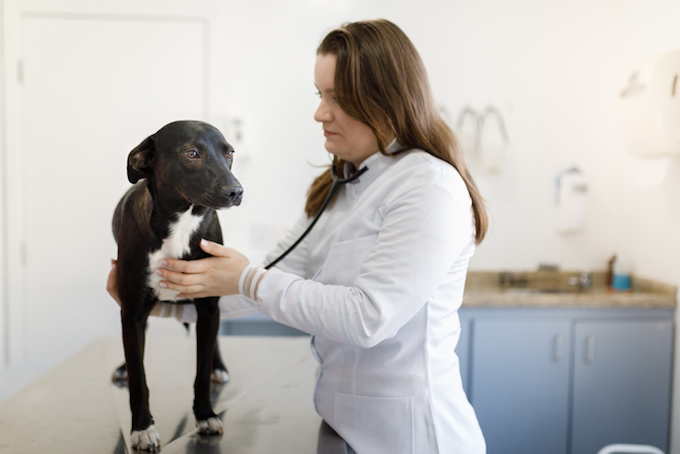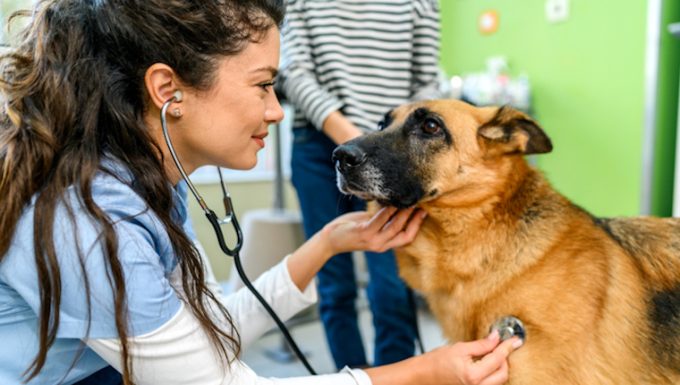Heart cancer in dogs happens when a tumor develops from the blood vessels in the heart. Unfortunately, the condition can become life-threatening.
Generally, the condition affects middle-aged and senior dogs more than younger pups. Additionally, certain breeds are more predisposed to the condition, including German Shepherds, Boxers, and Golden Retrievers.
Technically, the condition is also called hemagiosarcoma.
If you see the signs of heart cancer in your dog, then get to a veterinarian for a proper diagnosis and treatment.
Here’s what you should know about the symptoms, causes, and treatments for the condition.
Symptoms of Heart Cancer in Dogs
The condition produces a range of symptoms — although they mostly relate to complications from the condition. For example, some of the most common symptoms include:
- Fainting
- Breathing problems
- Irregular heart rhythm
- Unable to exercise
- Anorexia
- Depression
- Losing weight
- Bleeding
- Acting lethargic
Causes of Heart Cancer in Dogs

The cause of the condition is unfortunately unknown.
However, older dogs are more likely to develop the condition than younger ones. Additionally, the following breeds seem most at risk of it:
- Boxers
- German Shepherds
- Golden Retrievers
Treatments for Heart Cancer in Dogs
Firstly, your vet will ask about your dog’s symptoms. Secondly, your vet will ask questions about your dog’s complete medical history. This will include any breed-specific problems.
Unfortunately, a physical examination is often not very effective at detecting the condition. However, ultrasounds, X-rays, fluid samples, and biopsies can be more effective. Additionally, an electrocardiogram (EKG) can be useful.
Treatment will focus on the condition plus any complications. Chemotherapy can be used. In some cases, removing the tumor by a surgical process can be attempted.
Sadly, the prognosis for the condition is not good. But your vet can give you tips on how to make your dog more comfortable while living with the condition.
Have you ever cared for a dog who suffered from this condition? How did your vet help your dog recover? Let us know in the comments section below.









